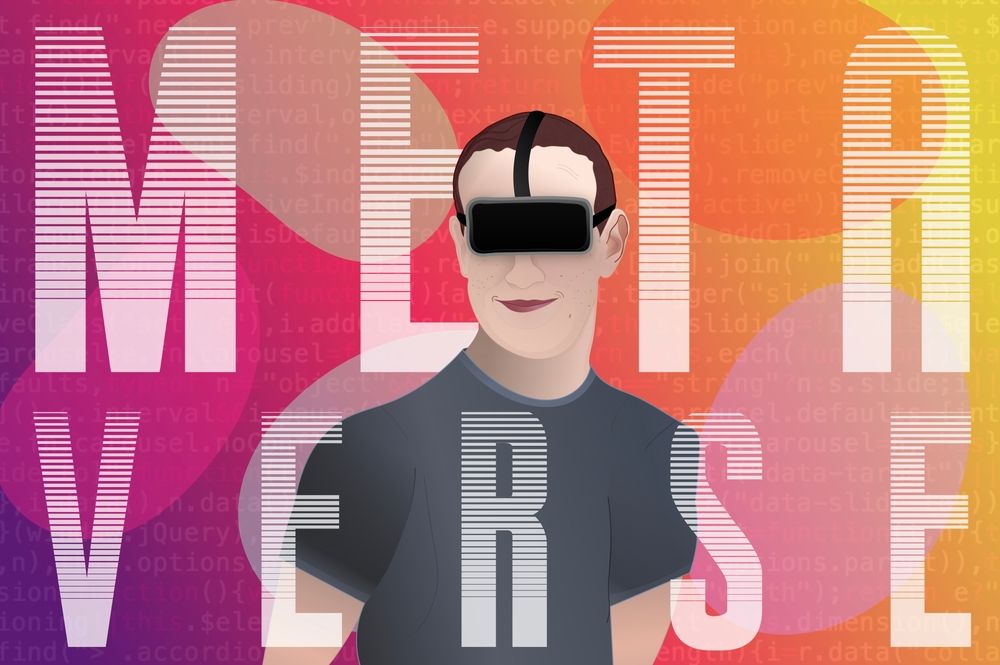The Gospel of the Metaverse
Evan Selinger / Mar 2, 2022Evan Selinger is a Professor of Philosophy at Rochester Institute of Technology.

The metaverse isn’t an entirely meaningless concept. Neil Stephenson’s 1992 dystopian novel Snow Crash is considered a foundational reference point. But today, as a corporate buzzword, it only has something vague to do with augmented and virtual reality. Since nobody knows how the two will develop and integrate, advertising is critical for creating an aspirational vision for the future.
What’s surprising about Meta’s branding is that it revolves around a religious theme of transcendence—an end to injustice and unhappiness and the beginning of complete personal freedom—that repeats all of the discredited early utopian pronouncements about cyberspace as a clean break from the ugliness and messiness of history. By now, you’d think the company would realize we see the myth for what it is: a cynical attempt to portray reality as shattered and only redeemable through corporate benevolence untethered to market pressures and capable of caring more about human dignity than shareholder profit.
Let’s put this in context. In 2013, Meta Platforms Inc. was Facebook, and the company was excitedly launching commercials for Facebook Home, an Android interface that put Facebook content front and center on your phone. The worst offender was a one-minute ad called “Dinner.” It featured a young woman escaping from the dull monotony of a family meal as an older relative droned on about cats. When the woman looks at Facebook Home, she immediately leaves the boring world of her familial gathering. In its place, she is “frictionlessly transported to a better place…full of enchanting rock music, ballerinas, and snowball fights.”
The ad was offensive because it suggests there's no point in putting in the effort to improve things here with the people around you, whether a relative you can’t easily connect with or really anyone who doesn't spark joy. The better option is to check out, leave your cares and responsibilities behind, and let Facebook cater instantly to your desires as if you're in heaven. Perhaps that vision could fly nine years ago. But today, who sees Facebook as a wish-granting machine rather than a platform designed to make the company money by extracting personal information and serving us targeted ads? If people previously weren’t aware of Facebook’s negative impact on democracy and mental health, the massive coverage of whistleblower Francis Haugen’s leaked documents made these points nearly inescapable.
The most recent ad is Meta’s Super Bowl commercial, “Old Friends, New Fun.” Like “Dinner,” it asserts that reality is broken and only a big tech company can save us. The surreal plot revolves around an animatronic dog who faces hard times. The poor pup starts off playing music with other robot animals in an arcade. But when Questys shuts down, the band breaks up, and the poor dog undergoes a series of humiliations, including being placed in a pawn shop, laughed at as a prop on a mini-golf course, and almost being flattened by a trash compactor. In a supposedly heartwarming finale, someone places a VR headset on our robo-dog and it’s instantly transported to Meta’s social VR platform, Horizon Worlds. We get a happy ending where the dog is reunited with the band (each member, of course, being in a different physical location) and rocks out with them in virtual reality.
The only way to make sense of this bizarre spectacle is to assume we’re supposed to identify with the unnamed protagonist. Thus, the story’s moral is that we, the human viewers, are just like a discarded object—something out of step with an inhospitable world. We’re permanently alienated, entirely without options, and unable to exercise any individual agency or connect with others to work towards a common good. Framed this way, structural change is impossible, and the only way to avoid the living hell of life is for a company like Meta to create an entirely new world—one where, magically, we can do whatever we want and be whoever we want to be, without any strings attached.
This vision is more than just a scathing indictment of physical reality and a romantic depiction of a virtual alternative. The portrayal of VR makes it heavenly: a pristine social setting where nobody misbehaves, politics are absent, nostalgia doesn’t cover up any prior ugliness, and nobody has to think of satisfying material needs. And, of course, there’s no aftermath, no back to everyday life moment. What’s the fun in seeing the underdog’s moment in the virtual sun merely being a short-lived reprieve?
No surprise, but Meta’s Horizon Safety video from a year ago features the message “you’re always in control” in the metaverse. Complete autonomy is a reassuring goal, and the footage underscores the idea that Meta puts its money where its mouth is. Trained safety specialists have our backs, we’re told, on the off-chance that something goes wrong. And yet, as a recent report on a case of sexual harassment in Horizon Worlds states, “it’s not the first time a user has been groped in VR—nor, unfortunately, will it be the last.”
That’s the thing. The many layers of social media safety remain a serious problem on Facebook, despite the platform going mainstream more than 15 years ago. This is a problem on all of the major platforms. Currently, “the world’s biggest social media companies are scrambling to combat a global barrage of Kremlin-backed falsehoods and digital tricks around the invasion of Ukraine.” Companies like Meta are nowhere near solving it for virtual reality. Indeed, an internal Meta memo suggests moderating harmful content at scale simply might not be possible.
Advertising has long tried to sell us visions of flourishing—to associate possessing things and having mediated or curated experiences with self and social actualization. This theme endures because easy escapism is a compelling fantasy. There’s no work involved, and we all deserve a break. But Meta’s promotional script, the gospel of the metaverse, is an incredibly condescending techno-salvationist vision—one that we should find unbelievable as well as unappealing.
Authors
